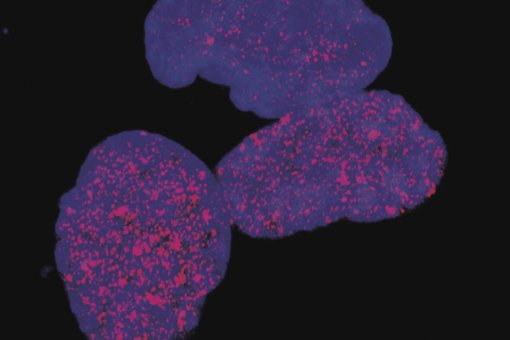Images
Participants

Contact

The study by Sofia J. Araújo sheds light on the fields of development, wound healing, angiogenesis, and tumour invasion, processes in which cell migration is crucial.
A study by Sofia J. Araújo, a Ramón y Cajal researcher with the Morphogenesis in Drosophila lab at the Institute for Research in Biomedicine (IRB), elucidates the genetic regulation of cell migration. Published today in the scientific journal Plos One, the research is part of the thesis work performed by Elisenda Butí, first author of the article.
Cell migration is highly coordinated and occurs in processes such as embryonic development, wound healing, the formation of new blood vessels, and tumour cell invasion. For the successful control of cell movement, this process has to be determined and maintained with great precision. In this study, the scientists used tracheal cells of the fruit fly Drosophila melanogaster to unravel the signalling mechanism involved in the regulation of cell movements.
The research describes a new molecular component that controls the expression of a molecule named Fibroblast Growth Factor (FGF) in Drosophila embryos. The importance of FGF in cell migration was already known but little information was available on its genetic regulation. In the study, Araújo and her team have discovered that a protein called Hedgehog, known to be involved in morphogenesis, regulates FGF expression.
“This is the first time that a direct connection has been demonstrated between the Hedgehog pathway and an increase in FGF during cell migration,” says Araújo.
“The results are really interesting for biomedicine,” explains the researcher, “as the Hedgehog pathway is overexpressed in some of the most invasive tumours, such as the most common kind of skin cancer.”
The team explains that this is a step forward for research into cell migration mechanisms and that future applications will emerge as further investigation and studies are conducted.
Reference article:
Hedgehog is a positive regulator of FGF signalling during embryonic cell migration
Elisenda Butí, Duarte Mesquita and Sofia J. Araújo
Plos One (2014) 10.1371/journal.pone.0092682
About IRB Barcelona
The Institute for Research in Biomedicine (IRB Barcelona) pursues a society free of disease. To this end, it conducts multidisciplinary research of excellence to cure cancer and other diseases linked to ageing. It establishes technology transfer agreements with the pharmaceutical industry and major hospitals to bring research results closer to society, and organises a range of science outreach activities to engage the public in an open dialogue. IRB Barcelona is an international centre that hosts 400 researchers and more than 30 nationalities. Recognised as a Severo Ochoa Centre of Excellence since 2011, IRB Barcelona is a CERCA centre and member of the Barcelona Institute of Science and Technology (BIST).





